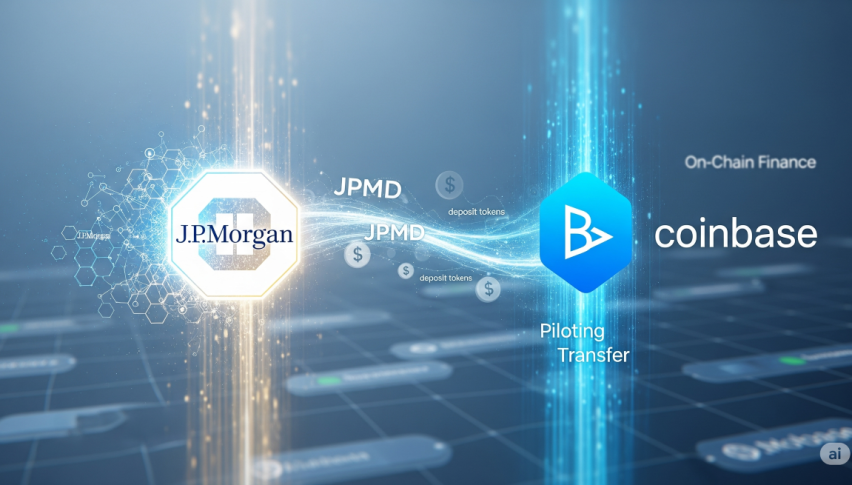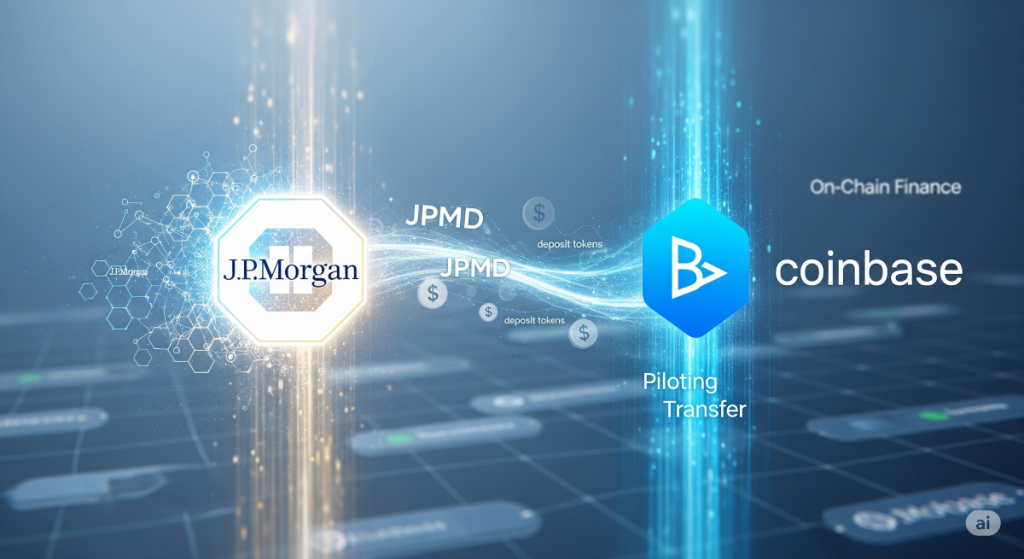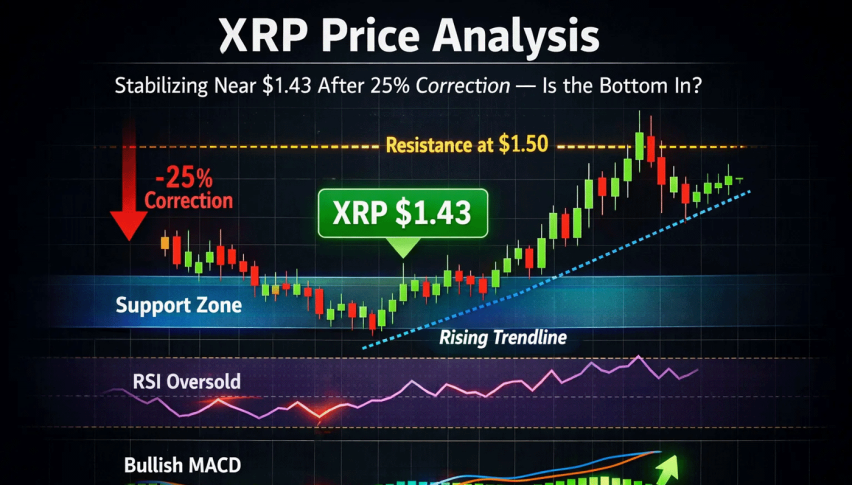JPMorgan Launches Revolutionary Deposit Token on Base Network, Claims Superiority Over Stablecoins
JPMorgan Chase has unveiled a pioneering pilot program for its new deposit token, JPMD. This is the first time the banking behemoth has used

Quick overview
- JPMorgan Chase has launched a pilot program for its new deposit token, JPMD, utilizing Coinbase's Base network, marking its first use of public blockchain technology.
- The JPMD token is designed for institutional clients and offers advantages over stablecoins, such as being backed by genuine dollar deposits and the potential to earn interest.
- JPMorgan is actively engaging with regulators to discuss the implications of blockchain on capital markets, indicating a broader commitment to integrating blockchain technology into traditional banking.
- The pilot program aims to enhance transaction speed and efficiency, potentially setting a precedent for other banks to adopt similar blockchain-based solutions.
JPMorgan Chase has unveiled a pioneering pilot program for its new deposit token, JPMD. This is the first time the banking behemoth has used public blockchain networks. Coinbase’s Base network will be the platform for this new digital asset project by the bank. This shows that established banks are changing the way they think about blockchain technology.

Naveen Mallela, worldwide co-head of JPMorgan’s blockchain group Kinexys, has stated that the pilot program will send a set number of JPMD tokens to cryptocurrency exchange Coinbase in the next few days. This transaction will take place exclusively on Base, Coinbase’s layer-2 blockchain that has become the largest Ethereum layer-2 network by market share since it started in 2023.
Superior Alternative to Stablecoins
JPMorgan executives say that deposit tokens are a huge step forward from regular stablecoins. Mallela said that deposit tokens are better than stablecoins from an institutional point of view because they are backed by fractional reserves and have more room to grow.
Stablecoins are digital versions of fiat currencies that are backed by cash and cash equivalents. Deposit tokens, on the other hand, are genuine dollar deposits that users have in their bank accounts and work within the existing banking system. This basic distinction has a number of benefits, including as the possibility of earning interest, which most stablecoins don’t have right now.
The JPMD token is made just for institutional clients. It will use blockchain technology to give them the best of both worlds: the security of traditional banking, including deposit insurance, and the ability to easily connect with existing account-based money systems.
Regulatory Engagement and Future Outlook
JPMorgan wants to do more with blockchain than just launch JPMD. Three high-ranking bank executives recently met with the Securities and Exchange Commission’s Crypto Task Force to talk about what it would mean for capital markets to move to blockchain networks. Scott Lucas, who is in charge of markets for digital assets; Justin Cohen, who is in charge of developing equity derivatives worldwide; and Aaron Iovine, who is in charge of digital asset regulatory policy worldwide, all took part in these important talks.
The meeting talked about possible changes to established financial models and how companies can figure out the risks and rewards of using blockchain. JPMorgan also talked about its present digital platform that manages repurchase agreements. This shows that the bank is already involved in the digital asset market.
Base Network’s Growing Dominance
JPMD chose Base as its platform since the network is growing quickly and is popular with institutions. In the last year, the total value locked on Base has more than doubled, making it a major player in the layer-2 ecosystem. JPMorgan’s institutional-focused project chose the network because it could settle transactions almost instantly and provide real-time liquidity.
Base said of the agreement, “Moving money should take seconds, not days.” He went on to say that the relationship is a big step toward completely integrating commercial banking with blockchain networks.
Market Impact and Industry Response
The trial program, which is scheduled to last for many months, will start by handling transactions in US dollars. Once it gets regulatory approval, it will also accept transactions in other currencies. When Coinbase is done, its institutional clients will be able to use JPMD for their transactions. This might create a standard for other big banks to follow.
This news comes at a time when traditional banks are becoming more worried about how yield-bearing stablecoins could change the way they do business. Experts in the field say that the strong US banking lobby knows how dangerous these digital assets are to traditional financial models.
JPMorgan’s proactive approach with deposit tokens seems to be a purposeful response to this changing landscape. It gives institutions a blockchain-based solution that keeps them connected to traditional banking infrastructure while also giving them the speed and efficiency benefits of digital assets.
If this pilot program works, it might speed up the use of deposit tokens in the financial industry. This would be a key moment in the merging of traditional banking and blockchain technology.
- Check out our free forex signals
- Follow the top economic events on FX Leaders economic calendar
- Trade better, discover more Forex Trading Strategies
- Open a FREE Trading Account
- Read our latest reviews on: Avatrade, Exness, HFM and XM


